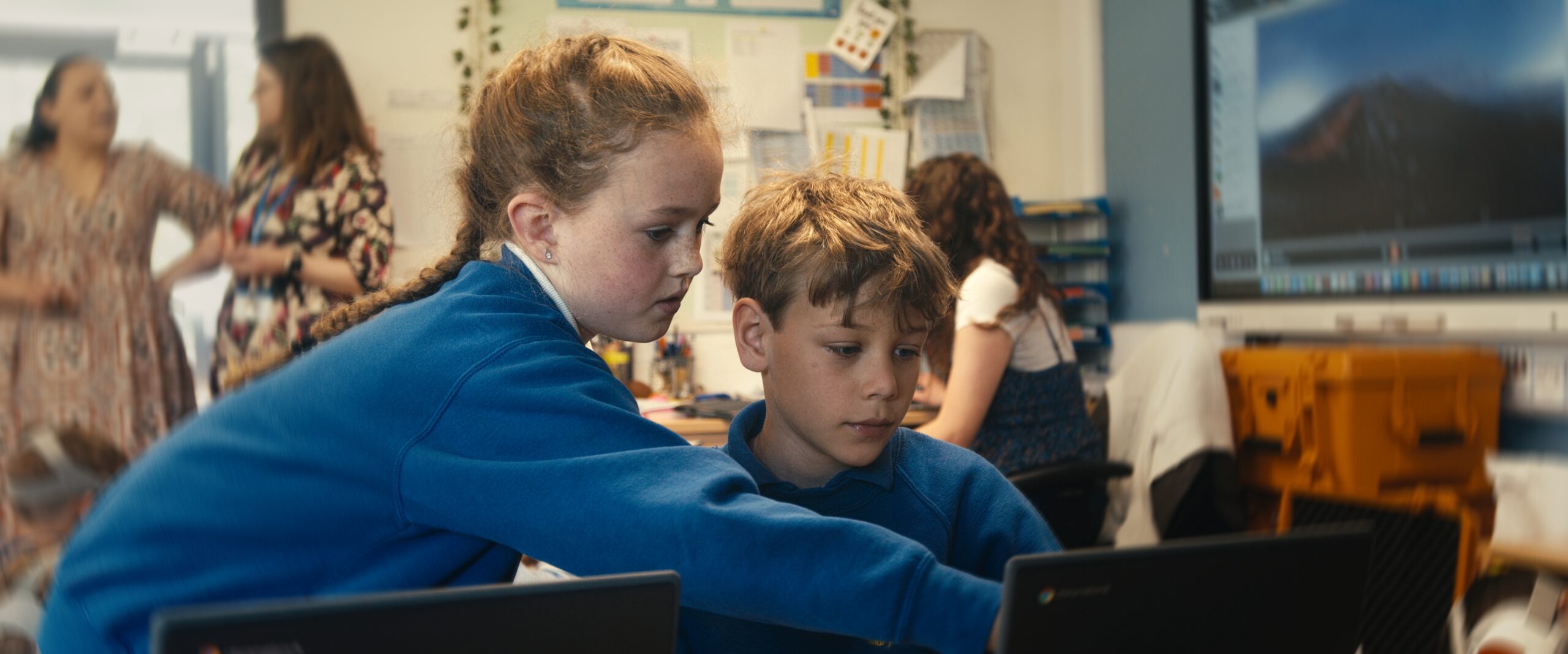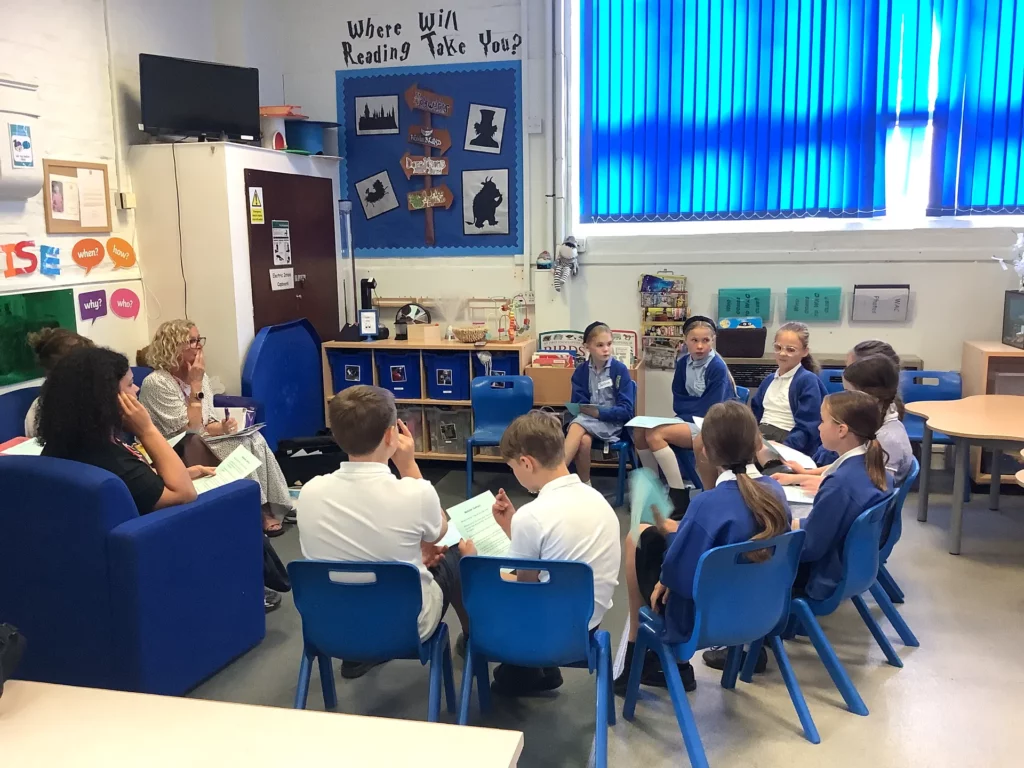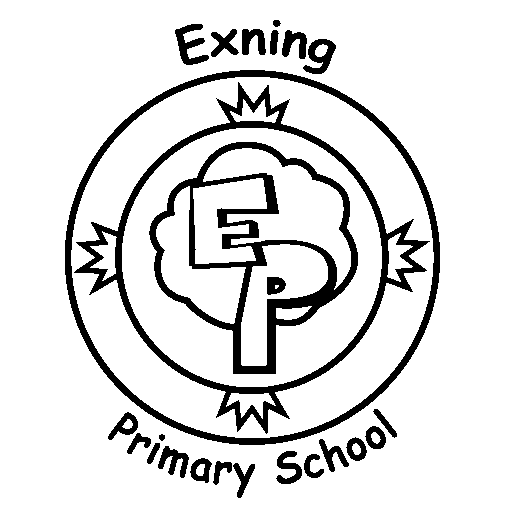
English
Quick links
Reading
“Reading for pleasure is the single biggest factor in success later in life, outside of an education. Study after study has shown that those children who read for pleasure are the ones who are most likely to fulfil their ambitions. If your child reads, they will succeed – it’s that simple.” Bali Rai
At Exning Primary School, we foster a love of reading because we understand the importance that reading plays in developing children’s confidence and in allowing them full access to the wider curriculum. We want to ensure our pupils are ready for the next stage of their education and provide them with crucial skills and knowledge which will aid their future success.
EYFS & KS1
In Reception and Key Stage 1 (Robins, Owls and Goldfinches), children will read with an adult at least once a week on a one-to-one basis. This is in addition to any whole class and group reading that will also take place during the week. We explicitly teach phonics decoding skills daily, using a mix of synthetic phonics programmes – and use the accredited ELS programme across Reception and KS1 (see Phonics for more information). We understand that effective evidence based reading instruction has five essential components: phonemic awareness, phonics, fluency, vocabulary and comprehension. We therefore ensure our pupils are given lots of opportunities to listen to and read a wide range of texts. Our daily phonics sessions are complemented by a literature-rich environment and by allowing our pupils to experience reading authentic literature and familiar materials in a variety of contexts across the curriculum.
Early intervention for pupils with reading difficulties is crucial and we ensure that these children are quickly identified so we can put additional support in place to meet their needs.
KS2
In Key Stage 2, (Kingfishers, Kestrels, Eagles and Swans), children are taught to analyse and discuss a wide range of texts using a whole-class-teaching sequence. Children take turns to read aloud, listen to the teacher read and then discuss the texts in pairs and groups, focusing on themes, conventions, characters, language and structure. Children are taught to justify their answers and participate respectfully in discussions about texts.
Once per week, children in Year 3, 4 and 5 also take part in a Reciprocal Reading lesson. Children work in small groups to analyse a text, using the 4 key areas of comprehension:
- Summarising
- Predicting
- Questioning
- Clarifying
Children then have the opportunity to feed back to one another and share their findings in groups.
In Year 6, there is more of a focus on giving evidence and using texts to give specific responses and formal reading comprehension is taught weekly.
Reception
As children enter the Reception Class (Robins), we ask parents/carers to read to their children frequently, sharing picture books and stories; traditional tales and texts with repetitive language and structures. We encourage parents to spot patterns with children and ask questions about the stories. As children begin to learn to read independently throughout the year, we encourage parents to listen to their child read, filling in their ‘Monkey Book’ with short feedback on how their child has read to them. Please see further information on Phonics regarding the texts that children bring home from school each week.
Key Stage 1
As children’s reading continues to emerge, we encourage parents to continue to hear their children read at least three times per week. At the end of Year 1 (Owls), children will take their phonics test – parents are encouraged to look at phonics with their children while they are reading, and play word games with words that have been read; looking for rhyming words or words that have the same letter strings in them. By the end of Key Stage 1 (Year 2 – Goldfinches), children at Exning Primary School have become confident readers, able to blend words and read many words on sight. Parents should still be looking for patterns in language, and exploring characters with their children throughout these two years. Parents could model how to read with expression, and ask questions about characters’ feelings, how the story is written and make predictions about what might happen next in the story. Please see further information on Phonics regarding the texts that children bring home from school each week.
Lower Key Stage 2
By the beginning of Year 3, (Kingfishers) pupils should be able to read books written at an age-appropriate interest level. They should be able to read them accurately and at a speed that enables them to focus on understanding what they read rather than on decoding individual words. They should be able to decode most new words outside their spoken vocabulary, making a good attempt at correct pronunciation. In Years 3 and 4 (Kingfishers and Kestrels), children will be exposed to a wider range of longer and more challenging texts at school. Parents can support this learning at home by encouraging children to read a range of texts by a range of authors, including fiction, non-fiction and poetry collections. Parents should still continue to hear their children read regularly, but should also encourage more confident readers to read independently. Children should be reading at least 5 times per week in Lower Key Stage 2, whether with a parent or independently. When sharing books together, parents are encouraged to ask questions about themes, characters’ feelings, word meanings, and summarising paragraphs, pages or chapters of text. Children should be encouraged to make predictions about what they have read.
Upper Key Stage 2
By the beginning of Year 5 (Eagles), pupils should be able to read aloud a wider range of poetry and books written at an age-appropriate interest level with accuracy and at a reasonable speaking pace. Children will be reading an ever-increasing range of texts within school, including classics, poetry and writing by modern authors. They should be able to read most words effortlessly and to work out how to pronounce unfamiliar written words with increasing accuracy and independence. Parent should encourage children to use dictionaries to find the meaning of unfamiliar words, and encourage children to ask their own questions about the text. By the end of year 6 (Swans), children should be able to justify their answers with evidence from the text and make connections across and within books. Parents are still encouraged to hear their children read at least once a week, and children should be reading independently at least 4 other times per week. Parents are encouraged to ask their children about their reading, asking for summaries of the stories, asking for their views and recommendations and asking them questions about characters, themes and patterns and connections they have noticed.
Reading for pleasure
At Exning Primary School, we believe that reading for pleasure is essential to children’s learning as well as their mental wellbeing. To encourage this, we hold a weekly “reading assembly” where adults model the joys of reading, sharing books, discussing stories and engaging with a wide range of literature Our library is stocked with a range of high-quality texts which children are encouraged to browse and choose independently. We have trained library monitors to talk to children about what they are reading and to make recommendations. Our Reading Volunteers work with every class in the school to share books with children and facilitate discussions around texts. We have reading pods in our school where children can go to read quietly, choosing from a wide range of books available at breaks and lunchtimes.
We are often asked by parents for recommendations for books for children. Please see the following links for websites devoted to suggestions for new books – many of which are award-winners in children’s literature and come highly recommended by a range of experts.

Writing
At Exning Primary School, we teach writing using a variety of strategies to inspire children’s work.
We take many principles from the Talk for Writing philosophy, as laid out by Pie Corbett, but combine these with techniques and ideas from the Power of Reading philosophy. We also use Jane Considine’s The Write Stuff for our longer pieces of fiction writing across the school, which focuses on vocabulary and the use of textual convention. Children use drama and text-interrogation techniques, as well as spending time unpicking the technical features of the text type and investigating language and structure. With all of these tools and techniques at their disposal, children are able to use high-level, quality literacy texts to inspire high quality writing.
Children are encouraged to edit their work by “Purple Polishing” and redrafting, using a range of tools to support them in their work. We use a range of peer, teacher and self-marking where children use structured marking ladders and success to assess their work.
Assessment is both formative and summative, with children being given a combination of written and verbal feedback to inform their improvements and next steps. Teachers will assess children’s writing against the objectives of the National Curriculum and use these to inform their planning for each written topic.
Spelling and grammar
Spelling
Spelling is taught discretely throughout the whole school, using resources from EdShed’s Spelling Shed. Please see long term plans for details of which specific spelling patterns and rules are taught in each phase.
Word lists, games and practise ideas are sent home with children to complete at home and are linked to the word-types, patterns and rules that they have been learning that week. Some children need additional support with spelling and they work in intervention groups to fill gaps, many caused by COVID interruptions. Children may also engage in specific literacy interventions (e.g. Morph Mastery) if phonetic approaches to spelling have not worked for them.
Grammar
In Key Stage 2 (Years 3-6), we teach whole-class Grammar sessions in-line with the National Curriculum. Please see long-term plans for exact coverage of each phase.
Grammar will be taught discretely a minimum of 3 times per week and will be revisited during Do It Now tasks and Talk Tasks at the beginning of lessons. Some English lessons will have a grammar focus when teaching writing skills, particularly when looking at advanced punctuation, which impacts on the meaning of sentences. Children in year 6 will revise concepts from all previous year groups, as well as learning new grammar and punctuation as specified by the National Curriculum. Children will have a termly grammar assessment, which will allow teachers to focus their teaching sequences on the needs of each specific class.
Phonics
Essential Letters and Sounds (ELS) is our chosen phonics programme. The aim of ELS is ‘Getting all children to read well, quickly’. It teaches children to read by identifying the phonemes (the smallest unit of sound) and graphemes (the written version of the sound) within words and using these to read words.
Children begin learning Phonics at the very beginning of Reception and it is explicitly taught every day during a dedicated slot on the timetable. Children are given the knowledge and the skills to then apply this independently.
Throughout the day, children will use their growing phonics knowledge to support them in other areas of the curriculum and will have many opportunities to practise their reading. This includes reading 1:1 with a member of staff, with a partner during paired reading and as a class.
Children continue daily phonics lessons in Year 1 and further through the school to ensure all children become confident, fluent readers.
We follow the ELS progression and sequence. This allows our children to practise their existing phonic knowledge, whilst building their understanding of the ‘code’ of our language GPCs (Grapheme Phoneme Correspondence). As a result, our children can tackle any unfamiliar words that they might discover.
Children experience the joy of books and language whilst rapidly acquiring the skills they need to become fluent independent readers and writers. ELS teaches relevant, useful and ambitious vocabulary to support each child’s journey to becoming fluent and independent readers.
We begin by teaching the single letter sounds before moving to diagraphs ‘sh’ (two letters spelling one sound), trigraphs ‘igh’ (three letters spelling one sound) and quadgraphs ‘eigh’ (four letters spelling one sound).
We teach children to:
- Decode (read) by identifying each sound within a word and blending them together to read fluently
- Encode (write) by segmenting each sound to write words accurately.
ELS is designed on the principle that children should ‘keep up’ rather than ‘catch up’. Since interventions are delivered within the lesson by the teacher, any child who is struggling with the new knowledge can be immediately targeted with appropriate support. Where further support is required, 1:1 interventions are used where needed. These interventions are short, specific and effective.
At the beginning of each academic year, we will hold an information session for parents and carers to find out more about what we do for Phonics, Reading and English at our schools. Please do join us.
